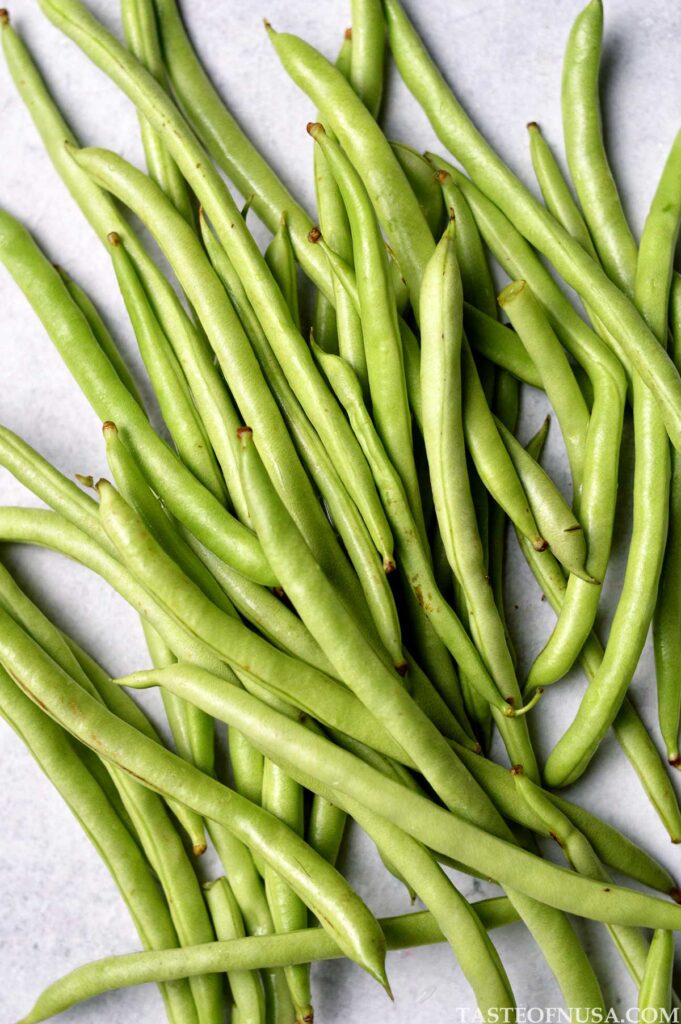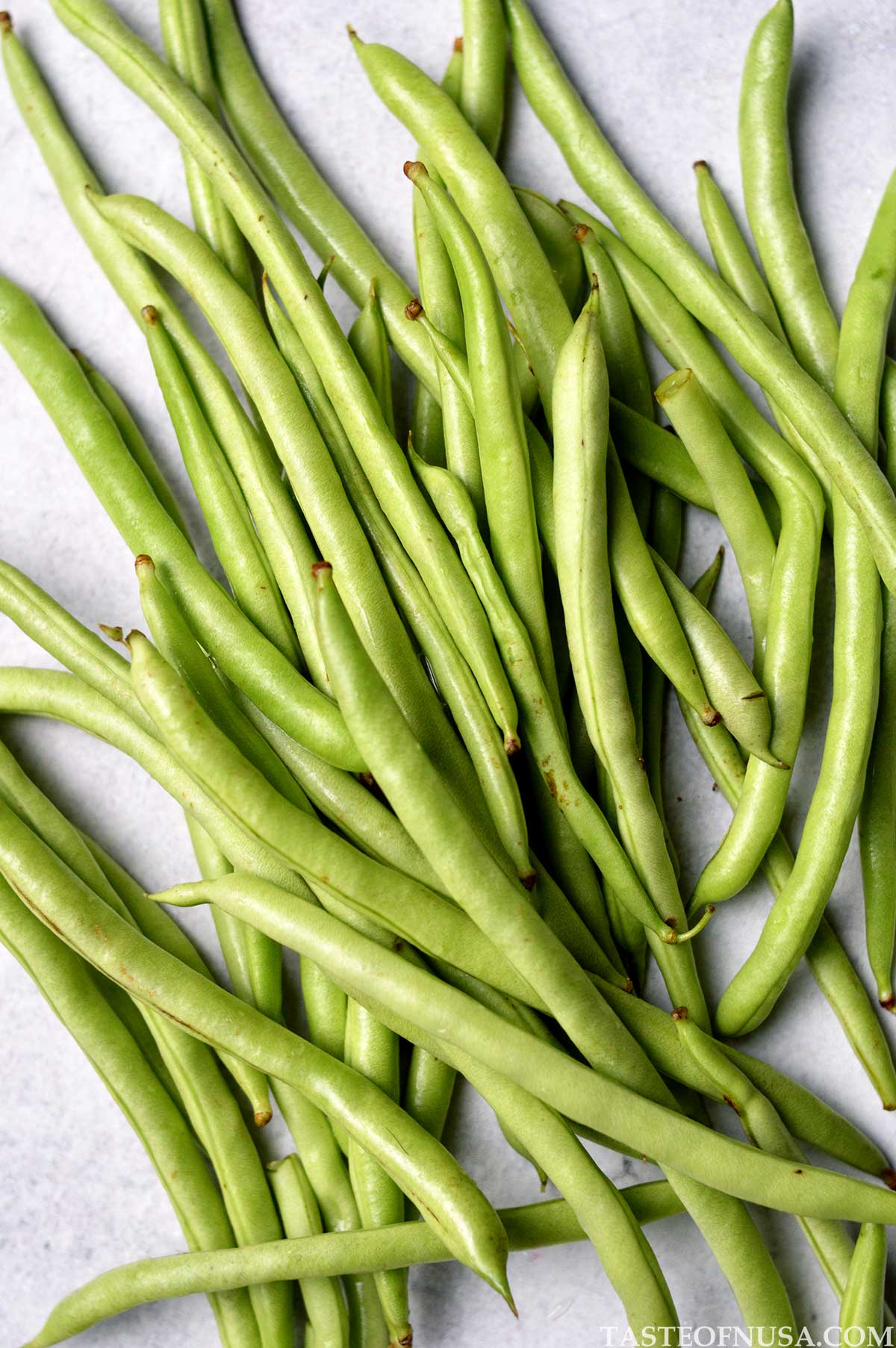So you’re getting ready to enjoy a delicious meal and eagerly take a bite of your green beans, only to be hit with an unexpected tangy, sour taste. It’s frustrating and puzzling, isn’t it? Well, in this article, we’re going to uncover the mystery behind why your green beans might taste sour. From potential cooking mistakes to certain varieties of beans, we’ll explore the various factors that could be responsible for this unwanted flavor. By the end, you’ll have a better understanding of what might be causing your culinary disappointment and how to prevent it in the future.
Factors that can cause green beans to taste sour
Green beans are a delicious and nutritious addition to any meal, but there are several factors that can cause them to taste sour. Understanding these factors can help you identify the problem and prevent it from happening again in the future. Some of the common reasons why green beans may taste sour include immature beans, overripe beans, microbial contamination, improper storage, soil conditions, environmental factors, cross-contamination, chemical contamination, nutritional imbalances, and cooking methods. Let’s explore each of these factors in more detail.

Immature beans
One of the main causes of sour-tasting green beans is harvesting them too early, resulting in immature beans. Immature beans are not fully developed and may lack the sweetness and flavor that mature beans possess. Harvesting green beans too early can lead to a sour taste and a pale green color. To avoid this, it’s important to wait until the beans have fully matured before picking them.
Overripe beans
On the other end of the spectrum, overripe beans can also contribute to a sour taste. When green beans are left on the vine for too long, they can become overripe, losing their vibrant color and sweetness. Additionally, overripe beans may contain excessive moisture and can even undergo fermentation, which can result in a sour taste. To prevent this, it is crucial to harvest green beans at the right time, when they are still firm and have a bright green color.

Microbial contamination
Microbial contamination can occur when green beans come into contact with harmful bacteria or mold. Bacterial infections can cause green beans to taste sour and can also lead to foodborne illnesses if consumed. Mold growth can also occur if the beans are not stored properly, leading to a sour taste and potential health risks. It’s important to handle green beans with clean hands and ensure they are stored in hygienic conditions to prevent microbial contamination.
Improper storage
Improper storage can also contribute to green beans tasting sour. Exposure to moisture can cause the beans to become damp, promoting the growth of bacteria and mold. Inadequate ventilation can lead to a buildup of moisture, further exacerbating the issue. Temperature abuse, such as storing green beans in overly warm or cold conditions, can also affect their taste. Additionally, storing green beans with ethylene-producing fruits can accelerate the ripening process and potentially lead to a sour taste.

Soil conditions
The quality of the soil in which green beans are grown can impact their taste. Nutrient deficiencies in the soil can result in underdeveloped beans that lack flavor and sweetness. Soil acidity levels can also affect the taste of green beans, with excessively acidic soil potentially leading to a sour taste. Furthermore, soil contamination with pollutants or toxins can negatively impact the flavor of green beans.
Environmental factors
Environmental factors such as extreme temperatures, excessive sunlight, and pollution can influence the taste of green beans. Extreme temperatures, whether too hot or too cold, can stress the plants and affect their ability to develop their full flavor. Excessive sunlight can also cause the beans to dry out and become less flavorful. Pollution in the air or soil can introduce contaminants to the beans, altering their taste.

Cross-contamination
Cross-contamination can occur during the handling and storage of green beans. If contaminated equipment, such as cutting boards or knives, comes into contact with the beans, it can introduce harmful bacteria and result in a sour taste. Similarly, improper handling practices or unhygienic storage conditions can contribute to cross-contamination and impact the taste of green beans.
Chemical contamination
Chemical contamination can occur through the use of pesticides, fertilizer residues, or contaminated water during the cultivation of green beans. Pesticides and fertilizer residues can leave behind harmful substances on the beans, affecting their taste. Additionally, if the water used to irrigate the plants is contaminated, it can introduce pollutants that alter the flavor of the beans.

Nutritional imbalances
Green beans, like any other plant, require a balance of nutrients to develop their full flavor. Nutritional imbalances, such as deficiencies or excesses of certain nutrients, can lead to subpar taste in the beans. Ensuring that the plants receive the necessary nutrients throughout their growth cycle is essential for producing flavorful green beans.
Cooking methods
The way green beans are cooked can also affect their taste. Overcooking green beans can result in a mushy texture and a sour taste. It’s important to cook green beans until they are just tender to preserve their natural sweetness. Improper seasoning, such as using too much salt or not adding enough flavors, can also contribute to a less-than-desirable taste. Additionally, when acidic ingredients, such as tomatoes or vinegar, interact with green beans during cooking, it can lead to a sour flavor.
In conclusion, various factors can cause green beans to taste sour. Harvesting beans at the right time, ensuring proper storage conditions, avoiding microbial contamination, maintaining optimal soil conditions, considering environmental factors, preventing cross-contamination and chemical contamination, addressing nutritional imbalances, and using appropriate cooking methods are all important aspects of ensuring that green beans taste fresh and delicious. With proper care and attention, you can enjoy perfectly flavorful green beans in your meals.



